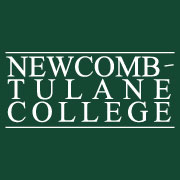This research project focused on the voting habits of college students by specifically analyzing partisan and political trends based on department and college of study. The data collected in this study found certain political trends among college voters based on their academic area of interest. The data reflected strong civic engagement regarding voter turnout and registration. Thus, the importance of college students, a sub-group of the 18-24 age bracket, increases regarding election results because college students show they are increasingly more engaged and likely to turnout. This study sought to analyze whether college students show and overwhelming support for one political party or the other; the data reflected a general tendency for the group to identify as more Democratic, however, there was variation among the results based on field of study. Respondents studying in the Schools of Science and Engineering or the School of Liberal Arts showed to heavily lean Democratic. However, those studying in the Business School showed a more mixed response; partisan trends in the Business School showed a stronger connection to partisan belief based on major, such as accounting, rather than college of study. In all, this project showed the political habits of college voters and certain trends among academic study and partisan beliefs. This information can be quite valuable for political campaigns to further understand this group of the electorate and how best to target voters for support.
The funds from this grant helped make this research study possible by financing the nationwide survey. The funds were used to pay for a service called Lucid which helps distribute a survey to specific groups of study and interest. Since this project focused specifically on the actions and beliefs of college voters, the survey had to be distributed only to current college, or other post-high school education programs, students. Using this software helped target respondents more easily and accurately as it distributed the survey only to those who matched these criteria. Another benefit of using this service is that it helps diversify the sample group, increasing the generalizability of the study. Without using a survey distributor, such as Lucid, it becomes increasingly difficult to find a group of respondents that match the necessary criteria while still reflecting a diverse and representative group for the study. This study included a diverse respondent group based on gender, race, state of study, and academic field of study. As a result of this grant, this survey could be sent nationally to develop a more useful and reflective data set.
I have found this research project to be one of the most valuable academic projects I have completed in my time at Tulane. This grant has allowed me to apply much of what I have learned in the classroom throughout my college career. This project allowed me to embark upon every step of a research project to a further extent than I had before. Because of this grant, I fully understand how to collect and evaluate data on a larger scale and translate what I find into a more concise report. I enhanced my data collection and analysis skills which will be useful in my future endeavors as I can better find data, as well as understand data I must analyze in the future. I also learned a wide array of information regarding my topic and can use this newfound information to embark on future research or apply to future analyses. This report felt like a culmination of all I have learned throughout a variety of classes as I used skills I have been honing throughout my time at Tulane. Without this grant, I would not have been able to fully explore and test my ideas and academic questions related to my field of study.
Written by Skye Summers, Dean’s Grant recipient, 2018-2019

